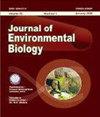Changes associate with chronotype, sleep pattern and depression levels among school students during pandemic COVID-19 lockdown and post lockdown online classes
IF 0.7
Q4 ENVIRONMENTAL SCIENCES
引用次数: 0
Abstract
Aim: To determine chronotype, daytime sleepiness, sleep quality, and depression level among school students during lockdown and post-lockdown online classes, and how it differed from their offline classes. Methodology: The study was conducted in three phases. The first phase was conducted during April and July 2019, second phase was conducted between 25th April to 23rd May 2020, and the third phase was conducted during July during August 2021. Hundred school students (46 male and 54 female) of age group 14-20 years participated. Morningness-Eveningness Questionnaire (MEQ) was used to measure their chronotype, while daytime sleepiness was assessed by Epworth Sleepiness Scale (ESS). Pittsburgh’s Sleep Quality Index (PSQI) was used to assess the sleep quality. Zung Self-Rating Depression Scale (SDS) was used to determine the depression level. Results: Results showed an increase in the evening type and a decrease in the morning and neither type persons during lockdown and online classes. In addition, higher depression levels, more daytime sleepiness, and poor sleep quality were observed during lockdown and online classes, irrespective of gender. Altogether, study suggests that lockdown and social isolation during post lockdown had a poor mental effect, increased daytime sleepiness, and poor sleep quality in school students. Interpretation: These findings would help in planing policies on the interventions on sleep, circadian rhythms, and stress management to maintain a healthy sleep-wake cycle and daily routine during social isolation. Key words: Daytime sleepiness, Depression, Epworth Sleepiness Scale, Morningness-Eveningness Questionnaire, Pittsburgh’s Sleep Quality Index新冠肺炎疫情封锁和封锁后在线课程期间,学生的时间类型、睡眠模式和抑郁水平发生变化
目的:确定学生在封锁期间和封锁后的在线课程中的时间类型、白天嗜睡、睡眠质量和抑郁水平,以及与线下课程的区别。方法:研究分三个阶段进行。第一阶段于2019年4月至7月进行,第二阶段于2020年4月25日至5月23日进行,第三阶段于2021年7月至8月进行。百名14-20岁年龄组的在校学生(46名男性和54名女性)参加了此次活动。晨昏量表(MEQ)用于测量他们的时间类型,而白天嗜睡则用Epworth嗜睡量表(ESS)进行评估。匹兹堡睡眠质量指数(PSQI)用于评估睡眠质量。采用Zung抑郁自评量表(SDS)测定抑郁程度。结果:结果显示,在封锁和网课期间,晚上型和早上型的人数分别增加和减少。此外,在封锁和网课期间,无论性别,都会观察到更高的抑郁水平、更多的日间嗜睡和较差的睡眠质量。总之,研究表明,封锁期间的封锁和社交隔离对学生的心理影响很差,白天嗜睡加剧,睡眠质量也很差。解释:这些发现将有助于制定睡眠、昼夜节律和压力管理干预政策,以在社交隔离期间保持健康的睡眠-觉醒周期和日常生活。关键词:白天嗜睡、抑郁、Epworth嗜睡量表、晨昏问卷、匹兹堡睡眠质量指数
本文章由计算机程序翻译,如有差异,请以英文原文为准。
求助全文
约1分钟内获得全文
求助全文
来源期刊

Journal of environmental biology
ENVIRONMENTAL SCIENCES-
CiteScore
1.70
自引率
0.00%
发文量
92
审稿时长
3 months
期刊介绍:
Information not localized
 求助内容:
求助内容: 应助结果提醒方式:
应助结果提醒方式:


